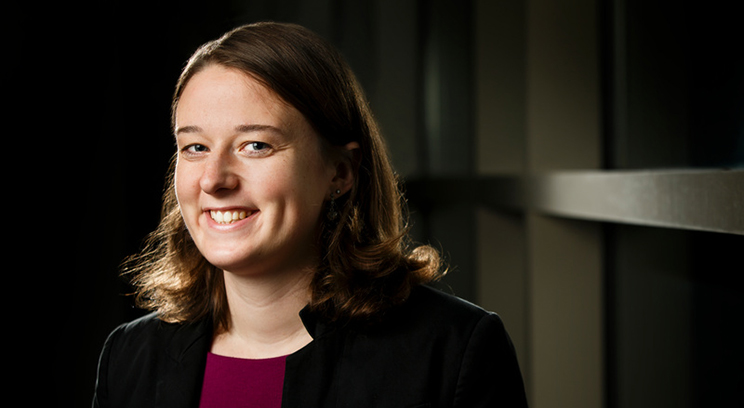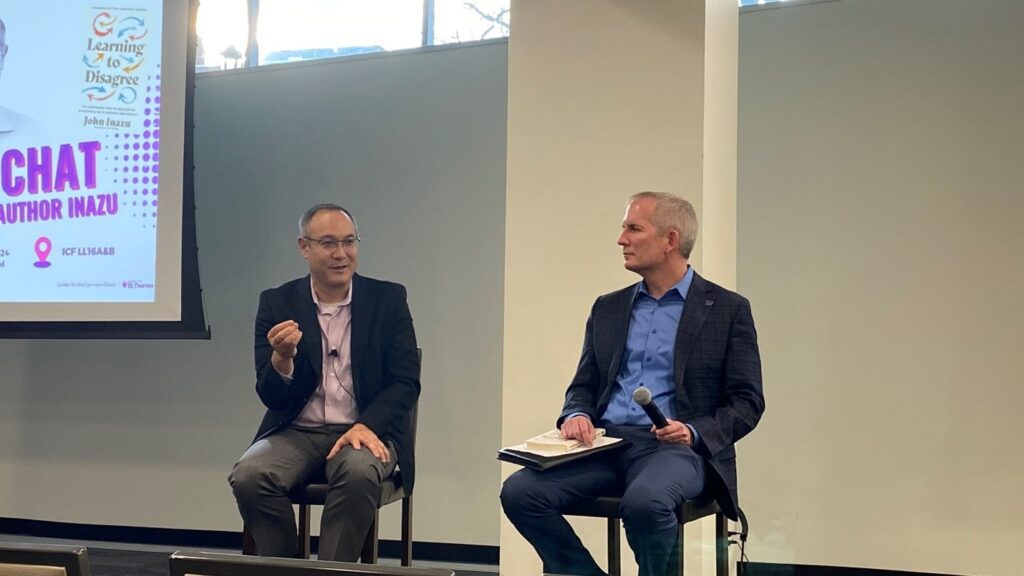My alarm goes off at 5 a.m. each morning. My day starts with a 3-mile run. By the time I return, my husband and son are making breakfast together. I have a quick 45 minutes to shower and eat because on some days, I have 70 miles to drive before 8 a.m.
I commute down to Owatonna, Minnesota, to clerk for the Public Defender’s Office. I was first placed there in August 2013 as part of the Misdemeanor Clinic. 1L year was painful. When school ended I knew I would return in the fall, but I was not sure how I would endure two more years of law school. Part of the answer came that summer. I enjoyed every moment of the break, working as a legal advocate for Tubman. I became enamored with the feel of the courtroom. I enjoyed exchanges with other legal professionals. Above all, I liked helping my clients.
As fall approached and I pondered where I would like to get my clinic experience, I thought more about why the summer had been a respite. I had enjoyed that for the first time in a year I was not being graded on a curve. I was not surrounded by other law students under similar pressure and in direct competition with me for grades. The summer had been an opportunity to learn in a different environment. Performing well meant helping others – not striving to outscore my classmates on IRAC exams. The former was not only more enjoyable, but more effective in developing my legal skills.
I decided to seek a clinic placement that would emulate the environment. I wanted a place that was friendly. One where students were not just cranked through court calendars as though working on an assembly line. Someplace that would benefit uniquely from having me there, because there are not lines of students trying to get feet in the door and experiences on their resumes. I asked my clinic professor to place me outside of the cities in a rural or small-town area.
Two weeks later I walked into the office of Julie Maxwell, former managing attorney of the Owatonna branch of the Third District Public Defender. Today I am still working down the hall from that space. The county courthouse is two short blocks away. There are two judges. I know every prosecutor and guardian ad litem in the county. I attend Steele County Bar Association meetings monthly. My work has spanned five counties. I have made contacts in each of them.
To say I am “hooked” to practice down here would be an understatement. I take great pride in the work I have done and the connections I have made. But my devotion is based on more than those things. I am enamored with rural practice. There is abundant opportunity. There are frequent job openings. Attorneys in rural areas get extremely diverse case loads. They often walk right onto a job and have everything from misdemeanor traffic violations to serious felonies. I have watched colleagues take advantage of these opportunities for different reasons. Most often, attorneys take these positions to gain trial experience that will make them competitive for urban jobs. However, I don’t understand how one does rural practice for a short time without falling in love with it the way I did.
Why do I love it so much? I will enumerate a non-exhaustive list:
1. The camaraderie. My colleagues and I know each other well. We frequently dine and socialize together. We help each other with cases. We rejoice in our triumphs and we grieve together over losses. A win for one of us is a win for all of us – and more importantly, it is a win for our cherished, shared sense of justice.
2. The diverse experiences. Within months of the commencement of my clerkship I had seen just about every kind of criminal hearing: arraignments, omnibuses, settlement conferences, contested omnibuses, pre-trials, trials, and sentencings. I have appeared at each of these. I even got to see a deposition taken over the summer. The two attorneys I shadowed said, “Just so you know, depositions almost never happen on the criminal side. Few clerks, if any, ever see them.”
3. My clients are often loyal to the towns I serve. Many have lived in them all of their lives. Almost all have generations of family nearby. The work I am doing does not just help individuals. It improves a cherished community. It helps people feel safe and “at home” in their hometown.
4. Rural areas like this one can be quite diverse. Immigrant populations settle here. They open businesses, raise their families, and contribute to society in meaningful ways. However, they often live in isolated communities. They feel silenced and marginalized from community leadership, including law enforcement and the judicial system. When I work down here I have opportunities from within the system to soothe distrust and mends communal rifts. I am a voice for the marginalized.
What is most remarkable about my list is that I have acquired these experiences and perspectives as a student. Early-morning alarms and hour-long commutes are of little consequence when there are worlds of opportunity to explore outside of the city.
Volunteering to clerk in a rural area was a game changer for my law school career. I encourage every law student to give it a shot. Even if you don’t fall in love like I did, you will certainly sharpen your skills, make friends, and help people who desperately need it.







